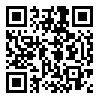Volume 6, Issue 2 (Vol6,No2(20) 2025)
2025, 6(2): 221-238 |
Back to browse issues page
Ethics code: درحال صدور
Download citation:
BibTeX | RIS | EndNote | Medlars | ProCite | Reference Manager | RefWorks
Send citation to:



BibTeX | RIS | EndNote | Medlars | ProCite | Reference Manager | RefWorks
Send citation to:
Allameh M, Salimi N, Malekbostan S, Miranisargazi N, Ghadiri S. (2025). Comparison of the Effectiveness of Intervention based on Parent-child Relationship and Dialectical Behavior Therapy on Communication Skills and Reduction of the Symptoms of Attention Deficit Disorder in Hyperactive Children. Journal of Childhood Health and Education. 6(2), 221-238. doi:10.22034/jeche.6.2.221
URL: http://jeche.ir/article-1-303-en.html
URL: http://jeche.ir/article-1-303-en.html
Masumeh Allameh1  , Nasrin Salimi2
, Nasrin Salimi2  , Shahla Malekbostan3
, Shahla Malekbostan3  , Narges Miranisargazi *4
, Narges Miranisargazi *4  , Shaghayegh Ghadiri5
, Shaghayegh Ghadiri5 
 , Nasrin Salimi2
, Nasrin Salimi2  , Shahla Malekbostan3
, Shahla Malekbostan3  , Narges Miranisargazi *4
, Narges Miranisargazi *4  , Shaghayegh Ghadiri5
, Shaghayegh Ghadiri5 
1- Department of Psychology and Education of Exceptional Children, Central Tehran Branch, Islamic Azad University, Tehran, Iran
2- Department of Psychology and Education of Exceptional Children, Faculty of Psychology and Educational Sciences of Tehran University, Tehran, Iran
3- Department of Educational Psychology, Tabriz Branch, Islamic Azad University, Tabriz, Iran
4- Department of Educational Sciences, Faculty of Psychology and Educational Sciences, Shiraz University, Shiraz, Iran
5- Department of Educational Psychology, Faculty of Psychology and Educational Sciences, Payam Noor University, Isfahan, Iran
2- Department of Psychology and Education of Exceptional Children, Faculty of Psychology and Educational Sciences of Tehran University, Tehran, Iran
3- Department of Educational Psychology, Tabriz Branch, Islamic Azad University, Tabriz, Iran
4- Department of Educational Sciences, Faculty of Psychology and Educational Sciences, Shiraz University, Shiraz, Iran
5- Department of Educational Psychology, Faculty of Psychology and Educational Sciences, Payam Noor University, Isfahan, Iran
Abstract: (1173 Views)
Background and Aim: Attention-Deficit/Hyperactivity Disorder (ADHD) is a common disorder among children in recent decades, resulting in decreased communication skills, isolation, and academic problems. This study aimed to compare the effectiveness of parent-child relationship-based intervention and dialectical behavior therapy on communication skills and reducing symptoms of ADHD in hyperactive children. Research Methods: This work followed a quasi-experimental design. The statistical population was all hyperactive children in Tabriz and Tehran cities in Iran. Sixty children aged 5-12 were selected and assigned to two intervention groups and a control group by simple random sampling. The data collection tools were the Matson Interpersonal Communication Skills Questionnaire and the Jordan Attention Deficit Disorder Index. The data were analyzed using one-way analysis of covariance, independent t-test, and analysis of variance using SPSS (v26). Results: There was a significant difference between the intervention based on the parent-child relationship and dialectical behavior therapy, and the control group, in the post-test regarding communication skills and the reduction of symptoms of attention deficit disorder. Moreover, the intervention based on the parent-child relationship had a greater effect on communication skills and reduction of attention deficit in children with hyperactivity disorder than dialectical behavior therapy. Discussions: Parents were taught to recognize their children’s needs, leading to the prevention of problems caused by hyperactivity, including attention deficit. The parents' positive attitude towards their children and effective response to behaviors created a suitable model for the individual's focus and attention, which could ultimately help them control the symptoms of attention deficit.
Keywords: Attention deficit disorder, Communication skills, Dialectical behavior therapy, Hyperactive children, Parent-child relationship
Type of Study: Research |
Subject:
Special
Received: 2025/12/17 | Accepted: 2025/09/1 | Published: 2025/09/20
Received: 2025/12/17 | Accepted: 2025/09/1 | Published: 2025/09/20
Extended Abstract [HTML 32 KB] (4 Download)
Send email to the article author
| Rights and permissions | |
 |
This work is licensed under a Creative Commons Attribution-NonCommercial 4.0 International License. |



